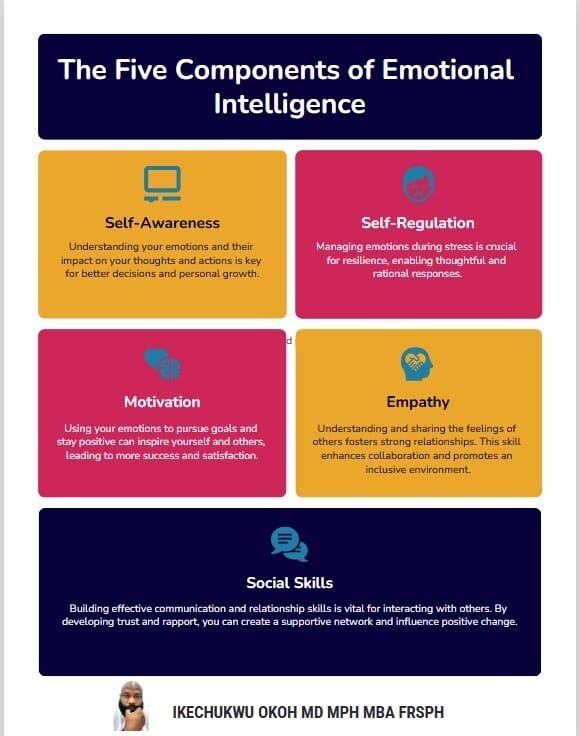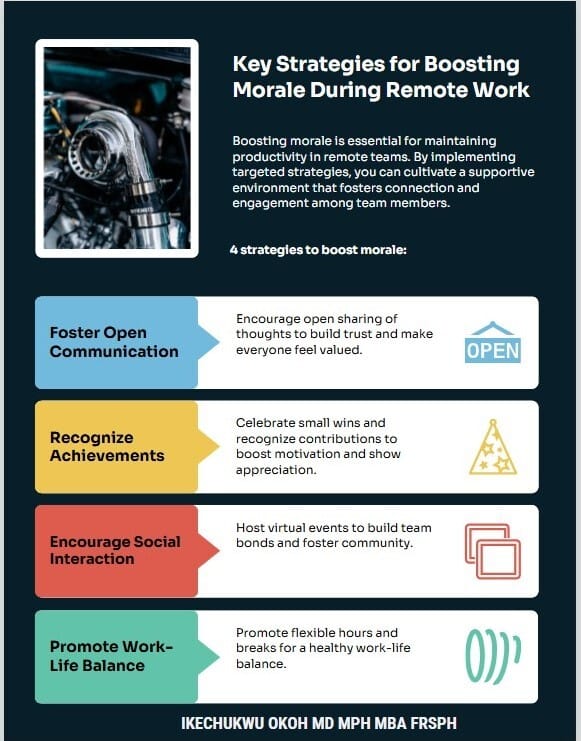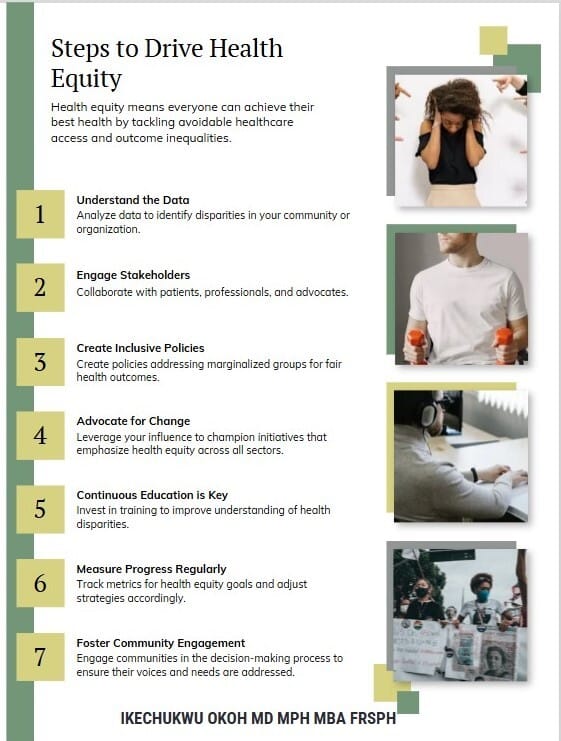- Leadership Pulse
- Posts
- Emotional Intelligence: Why It’s the Core of Effective Leadership
Emotional Intelligence: Why It’s the Core of Effective Leadership
Welcome to Leadership Pulse!
I share weekly actionable strategies and lessons from my experiences as a healthcare leader, entrepreneur, and angel investor.
The Leadership Pulse newsletter will equip you with insights for creating lasting impact, whether navigating leadership challenges, building cohesive teams, or scaling a startup.
This week’s topics remind us that great leaders balance emotional intelligence, team morale, and equity to create lasting impact.
This Week at a Glance
Emotional Intelligence: Why It’s the Core of Effective Leadership
Emotional intelligence (EI) is more than just understanding emotions;
It’s about applying that understanding to lead effectively.
Leaders with high EI excel at building trust, managing stress, and fostering strong interpersonal relationships.
It’s a critical asset for driving organizational success in today's dynamic environment.
The Five Components of Emotional Intelligence:
Self-Awareness: Recognize your emotions and their impact on your decisions and team.
Self-Regulation: Stay in control of your emotions, especially in challenging situations.
Motivation: Cultivate an intrinsic drive to inspire and persevere.
Empathy: Understand and value others’ perspectives and emotions.
Social Skills: Build and maintain positive relationships through effective communication and collaboration.

Why It Matters:
Leaders with high EI foster stronger team connections.
Emotional intelligence enhances decision-making in high-pressure scenarios.
Empathy builds trust and boosts morale, especially in diverse teams.
Actionable Tip: Practice mindfulness to improve self-awareness and emotional regulation.
Consider starting your day with a brief reflection or journaling session.
Reflection Question: Which EI component can you strengthen to become a more effective leader?
Remote Teams: Strategies for Maintaining Team Morale
Remote work has transformed how teams operate, making morale a critical factor for productivity.
Successful leaders know that maintaining engagement and connection in a virtual environment requires deliberate action.
Key Strategies for Boosting Morale:
Frequent Check-Ins: Schedule regular one-on-ones and team meetings to stay connected.
Recognition and Celebration: Acknowledge big and small contributions to keep motivation high.
Promote Work-Life Balance: Encourage employees to set boundaries to avoid burnout.
Leverage Technology: Use collaborative tools like Slack, Zoom, and Asana to enhance communication and streamline workflows.
Create Informal Connection Points: Virtual coffee chats or game nights can help build camaraderie.

Many companies implemented a “no meeting Fridays” policy, giving employees time to focus or recharge.
This simple initiative improved job satisfaction and productivity.
Actionable Tip: Implement a fun weekly ritual, like “Theme Thursdays,” where team members share personal interests or fun facts.
Reflection Question: What changes can you make this week to enhance your remote team’s sense of connection and motivation?
Leadership in Health Equity: Closing the Gaps in Access and Opportunity
Health equity ensures everyone has a fair opportunity to achieve their best health.
Leaders play a vital role in addressing disparities and driving meaningful change in their organizations and communities.
Steps to Drive Health Equity:
Understand the Data: Collect and analyze data to identify disparities within your organization or community.
Engage Stakeholders: Collaborate with patients, providers, policymakers, and community leaders.
Create Inclusive Policies: Develop policies that prioritize underserved populations.
Advocate for Change: Use your influence to promote equity-focused initiatives at all levels.

Through strong leadership and data-driven policies, Rwanda achieved healthcare access for over 90% of its population.
The initiative combined government support, local partnerships, and global collaboration to address systemic inequities.
Why This Matters:
Organizations with a health equity focus see improved patient outcomes and community trust.
Addressing inequities strengthens workforce morale and engagement.
Equity initiatives align with ESG (Environmental, Social, and Governance) goals, enhancing long-term sustainability.
Actionable Tip: Conduct a health equity audit in your organization to identify gaps and opportunities for improvement.
Reflection Question: How can you advocate for health equity within your organization or community?
Leadership is about adaptability, empathy, and action.
This week’s topics remind us that great leaders balance emotional intelligence, team morale, and equity to create lasting impact.
Take these lessons into the week and inspire those around you to achieve excellence.
Let us continue leading with empathy, purpose, and resilience.
Please stay connected with me on the following:
Yours in leadership,
Ikechukwu Okoh
Let’s grow together!
P.S. Share this newsletter with a colleague who would benefit from these insights.
Partner with Me for Impact:
Executive Coaching for Healthcare Leaders:
Tailored strategies to help you lead effectively in uncertain environments.Healthcare Consulting Services:
Insights on enhancing operational efficiency, regulatory compliance, and patient care outcomes.Advisory for Healthcare Startups:
Support with scaling strategies, investor pitching, and navigating healthcare regulations.
Reply to this email or find me on LinkedIn, and let’s discuss how I can help you achieve your goals.
“Subscribe to the Leadership Pulse newsletter. It is amazing”.- Tolu Ekwe
|

Reply